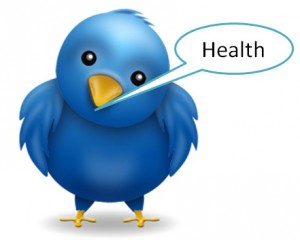I have conducted research into the use of social media by the NHS. I also have much experience of using Social Media as a researcher, as well as interacting with NHS staff and organisations on Twitter, especially as I am a regular contributor to the weekly #nhssm chats. If you would like to me to run a workshop on twitter for your staff, please contact me.
——————————
Articles written by me related to the use of social media in the NHS:
How to use Twitter for Health Campaigns (Top 10 tips)
2012-02-18 18:40:42I was recently asked by a Public Health Local Government Consultant to advise him on how to use Twitter for a Health campaign. My response via email has been recorded below for the benefit of others. I welcome your suggestions and comments!
Question: How do I use Twitter to help promote a public health campaign?
Answer: Thank you for your email. To start off, for a basic guide to Twitter I would suggest you read this. It is written in a clear understandable format. There are also three articles on the #nhssm website which are specifically targeted towards the NHS called ‘A guide to Twitter and Online Etiquette’: Part 1, Part 2, and Part 3. These may also be useful read to get a reaffirmation of what Twitter is and how it could be used. However, this is just the starting point.
To move to the most exciting and fruitful part, one of the most useful articles related to your query I have personally come across is one written by Richard Blogger on his blog, NHS Vault, where he clearly spells out how Twitter can be used to engage and interact with people (many whom are influential), and how to build a community and become influential yourself. To quote from his article:
If you are interested in a topic then you will have built up a community of people who you follow and people who follow you, all of whom are interested in the topic. You can widening this community through searches for a key phrase or hashtag. The result of the search will be tweets from people outside of your community and if you find that the tweets from one person are useful, you can follow them (to widen your community) and talk to them (through replies or mentions) and interact. Potentially, they will follow you, widening the community further.
- Start following all the people who are actively talking about the NHS and healthcare. This can be found by conducting a simple search on Twitter or following the people influential people (people interested in healthcare) are following, or have a look at AnneMarie Cunningham’s list of people on Twitter who are interested in Healthcare (and don’t forget to follow her!)
- Follow all NHS organisations. The list of NHS organisations on twitter can be found here.
- Create a #hashtag related to your campaign and start using it in as many tweets as you can. There is also a comprehensive list of existing Healthcare Hashtags here (courtesy of Mike Clark).
- Once you have a few followers start a tweetchat or a live twitter chat and ask people to participate.
- From the account you want to promote, start talking to people and take part in discussions. Don’t be afraid to ‘but-in’ to interesting conversations.
- Take part in popular healthcare live chats, such as #nhssm. You’ll find many followers that way. Details of healthcare chats on Twitter can be found here.
- The more popular people follow you, the more people will see your #hashtag, which will result in more people seeing your campaign and hopefully you’ll have active followers. So always be courteous to your followers i.e. if anyone @mentions you, do reply!
- Create interesting (some may even go as far as saying controversial) content and post it out to your followers.
- Genuinely reach out to help people on Twitter in whichever capacity you can (however small). This will gain you followers and more importantly respect and admiration from your followers.
- There are plenty of tips online on how to get more followers, how to use #hashtags and how to run twitter chats. Use these resources to your advantage.
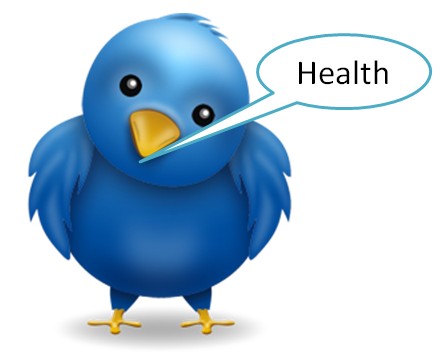 Read more...
62 comments
Read more...
62 comments
The use of Skype (or VoIP) for Medical Consultations
2012-01-17 12:34:16
Two weeks ago I attended a face-to-face consultation at my local hospital which in itself lasted no more than 5 minutes. For it, I had to take half a day off work (travel forth and back, time spent walking forth and back from the car park, waiting time etc) , spent £5 on petrol, and £4 on car parking fees. Not to mention, the time it took to make up the hours and of course the freezing cold weather. I’m sure many of you can relate to this.
As I was driving home, I realised that had my consultant just dropped me a 5 minutes call, it would have saved so much time and hassle saved costs for me and the NHS too (they wouldn’t need multiple waiting areas, staff, cleaners and parking spaces!), which would result in increased productivity, cost savings and convenience for both the NHS and patients!
The use of Skype (VoIP) for health consultations outside the NHS
There are numerous examples of health consultations being conducted through Skype, or other VoIP applications, especially in alternative medicine and therapy. West Sussex Homeopathy, Harley Street Skin, and NLP therapy, are a few examples of many that conduct consultations through Skype. More excitingly however, Lloyds Pharmacy are now offering private GP consultations through Skype for £20 per a (15-20 min) consultation.
Using Skype (VoIP) in the NHS for health consultations
After the Department of Health’s call in August to ask the public to submit and suggest favourite apps as well as your ideas for new apps and health maps (more info here), Professor Sir Bruce Keogh announced that he was looking at using online services such as Skype to make the NHS more convenient for users: ”Once you have online consultations, it breaks down geographical boundaries. It opens up the spectre of 24/7 access.”
He went on to argue that it would be much more convenient for both patients and GPs: ‘In a world where immediacy and convenience influence how people perceive the quality of a service, you can see how that kind of thing might catch on.’ According to GP Online, a GMC spokeswoman replied to this news saying that ‘existing guidance stated that doctors must ensure patient information is not disclosed in public, for example, in an open internet chat forum’. I can understand the caution of GMC, but since when is Skype an open internet chat forum? However, there have been issues raised (thanks @clarkmike for bringing it to my attention) in America about the security of data transported through Skype and the ease by which some hackers could breach doctor-patient confidentiality if Skype is used for consultations.
Please also join the #nhssm chat this week (on Twitter) about video calling for consultations.
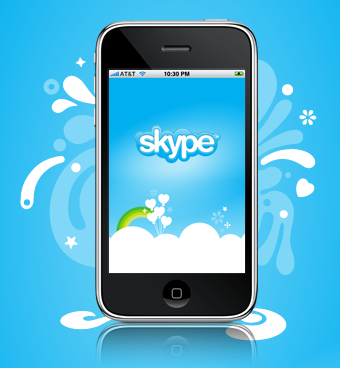 Read more...
8 comments
Read more...
8 comments
Tools used to measure influence & resonance of a twitter account
2011-10-26 20:00:15Tools used to measure influence & resonance of a twitter account:
- TweetGrader: Grades you in comparison to others: http://tweet.grader.com/
- Re-tweet rank: http://www.retweetrank.com/
- Twitalayzer, twitter influence: http://twitalyzer.com/index.asp
- Authority: PeerIndex: http://www.peerindex.net
- TunkRank is a tool for measuring influence on Twitter based on how much attention your followers can actually give you.: http://tunkrank.com/
- Klout: Social influence on twitter: http://klout.com
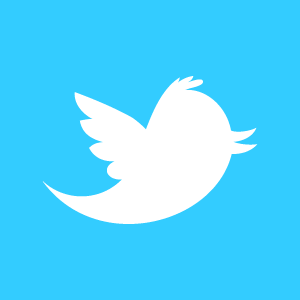 Read more...
0 comments
Read more...
0 comments
An overview of Healthcare Apps in the UK
2011-10-19 11:14:25Yesterday I presented a talk ‘An overview of Healthcare apps in the UK’ at the Medical Apps Seminar organised by the British Computer Society (BCS). The presentation (made in prezi) along with notes and references are below.
There has been a growth in the use of smartphones (i.e. phones that fulfil the basic functions of a computer) in the UK, with Ofcom, the independent regulator for the UK communications industries reporting in early August 2011 that nearly one in three adults in the UK now use a smartphone. Teenagers in particular are ditching more traditional activities in favour of using their smartphones, with 23% claiming to watch less TV and 15% admitting they read fewer books. When asked about the use of their smartphones, 37% of adults and 60% of teens admitted that they were ‘highly addicted’ to smartphones.
The number of smartphones in use globally is expected to hit 1.7 billion by 2014. Analysts Mason have forecast that the use of smartphone devices will grow at an annual rate of 32% between 2010 and 2014. Based on both Ofcom’s report and this forecast we can broadly estimate that by 2014, 62% of the UK population will be smartphone users.
In terms of app usage, in June 2010, the average US mobile user spent 43 minutes a day using apps. In June 2011, that increased to 81 minutes, with web usage at 74 minutes. This shows that apps are becoming even more popular than traditional websites, and though these figures are for the US, it wouldn’t be surprising if similar types of figures are found for the UK.
Currently, iPhone accounts for two thirds of UK connected app users, a 65% share, with Android accounting for 31%, and other platforms taking a 4% share (Source). However, Over the past year, the Android has seen 4.7 million new users adopt the OS in the UK, resulting in a 634 percent increase.
Some may ask why there a need for healthcare apps? BUPA conducted research which revealed that 73% of Brits go online for health information; more than 64% look for information about medicines, and 58% self-diagnose. Shockingly, only a quarter of people say they check where their online advice has come from.
Furthermore, a Nottingham-based research team used the search engine to find UK-based advice on five common health issues. They found that only 40% of the websites offered correct information (Source). Hence, there are great benefits for healthcare users to use apps that are promoting best practice and tailored to their health needs.
Currently, there are around 4,199 paid medical apps and 2,792 free medical apps in the iTunes App store, 6,991 in total- that’s just from iTunes (Source). The Android store also has a medical category.
Apple has attempted to categorise these apps so that healthcare users can find them easily. They have categorised them as:
- Reference Apps which provide mobile and convenient point of care access to reference information
- Education Apps which support health care professionals and students with educational content
- EMR & Patient Monitoring Apps which are linked to Electronic Health Records.
- Imaging Apps, which connect health care professionals with hospital systems.
- Point of Care Apps which support health care professionals at the bedside
- Personal Care Apps are for wellness for patients and the public
Based on the popularity of healthcare apps, in August (this year), the Department of Health launched a crowdsourcing initiative for people to vote on existing healthcare apps and propose ideas for new healthcare apps at the Department of Health website, which was called #mapsandapps. They did this by calling on patients, health professionals and budding app developers to tell them about their ideal app. The idea was that the top voted apps would be judged by a panel, and a group of apps would be chosen to be showcased at an event. In the original plan for the project they were aiming for at least 1,000 interactions on the site. In the end they received 9,198 entries, votes or comments. They were very pleased with this, especially because there was no dedicated marketing (Source).
The top voted app was Moodscope which is a ‘website-based-app’ which allows one to measure, track and record comments on your state of mind, allowing you to see what things in life make you feel happy/sad and results can be sent to friends and carers, alerting them if you’re feeling down.
HealthUnlocked was the second best voted app. It provides a social network for patients, providing online support. Amongst other things, it lets patients share experiences and monitor their health.
FoodWiz.co (as the third best voted app) is an app for people with food allergies. You can download FoodWiz onto your smartphone and input the ingredients you wish to avoid. Whilst shopping, you can simply zap the barcode of any item you wish to check and you will be told if it is suitable.
The idea of the fourth best voted app is to provide self-help in the aftermath of a sexual assault, including access to services, Post Traumatic Stress Disorder (PTSD) symptom support and self-help ideas.
The fifth best voted app was an app for Patients Know Best. Patients Know Best is a system already in place; where the patient is in control of his/her health record and each clinician gets access to the electronic healthcare record.
So these are the top 5 voted ideas. I also contributed to this project by writing about a way finding app, which you can read more about here or on the Department of health mapsandapps blog.
In conclusion, these are a few challenges that I currently envisage for healthcare apps, for example:
- Currently 2/3 of the UK population don’t have smartphones. How effective are the alternatives to apps in this interim period?
- How do you successfully categorise healthcare apps, so that healthcare users can easily find them?
- How can the NHS use its branding to mark apps as official and trustworthy?
- Should the NHS look at approving third party apps?
- How do you ensure that apps are not replicated?
- How do you ensure that apps fulfil a function greater than being just a flashy app?
I would be delighted to hear from you on how these challenges can be overcome or at the very least, addressed.
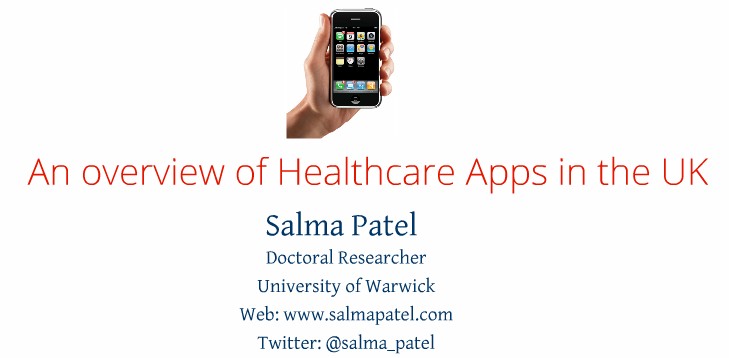 Read more...
18 comments
Read more...
18 comments
Comparing the functionality of four NHS iPhone Apps
2011-08-02 14:38:31 Read more...
1 comment
Read more...
1 comment
